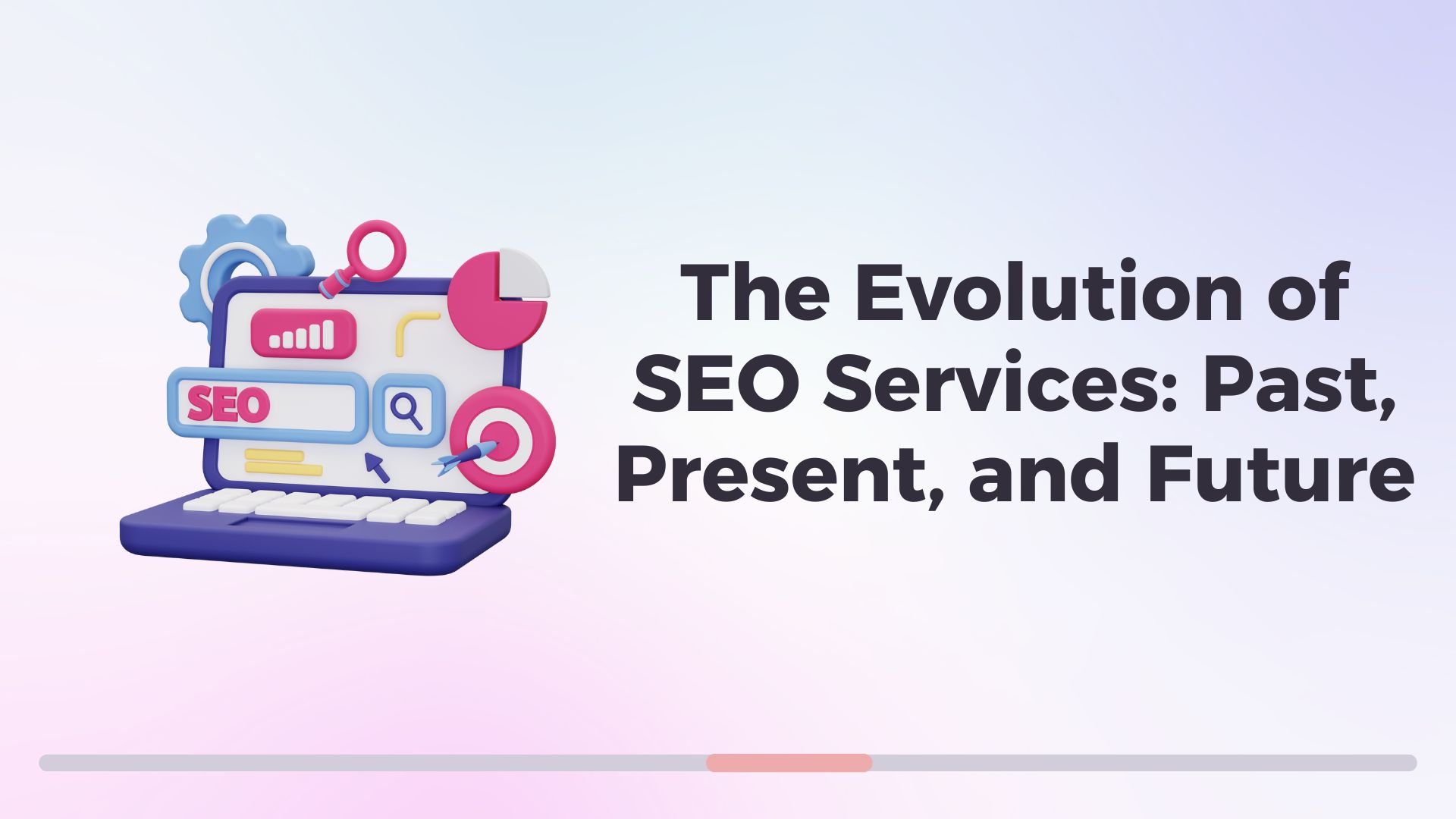The Evolution of SEO Services: Past, Present, and Future
Introduction Search Engine Optimization (SEO) has transformed significantly since its inception, evolving alongside changes in search engine algorithms, user behavior,...

Introduction
Search Engine Optimization (SEO) has transformed significantly since its inception, evolving alongside changes in search engine algorithms, user behavior, and digital marketing strategies. From the early days of keyword stuffing and directory submissions to AI-driven optimization and voice search, SEO continues to adapt to the ever-changing digital landscape. This article explores the past, present, and future of SEO services, providing insight into how businesses can stay ahead in the competitive online world.
The Past: The Early Days of SEO
In the 1990s, as search engines like Yahoo! and AltaVista emerged, website owners quickly realized the importance of ranking higher in search results. Early SEO techniques included:
- Keyword stuffing – Overloading web pages with repetitive keywords to manipulate rankings.
- Meta tag optimization – Using meta keywords and descriptions to signal relevance to search engines.
- Directory submissions – Listing websites in directories like DMOZ and Yahoo! Directory.
- Backlink manipulation – Acquiring as many backlinks as possible, often through link farms and reciprocal linking schemes.
Google’s entry into the search engine market in 1998 marked a turning point. With its PageRank algorithm, Google prioritized backlinks and content relevance, discouraging manipulative practices and setting the foundation for modern SEO.
The Present: Modern SEO Strategies
Today, SEO is a sophisticated digital marketing strategy that focuses on user experience, content quality, and technical performance. Key aspects of modern SEO include:
Content and User Experience (UX)
- Google’s algorithms prioritize high-quality, relevant, and authoritative content.
- User engagement metrics, such as dwell time and bounce rates, influence rankings.
- The rise of E-A-T (Expertise, Authoritativeness, and Trustworthiness) means websites need credible, well-researched content.
Technical SEO and Performance Optimization
- Mobile-first indexing ensures websites are optimized for mobile users.
- Core Web Vitals (loading speed, interactivity, visual stability) impact rankings.
- Schema markup helps search engines understand page content better.
Link Building and Authority Development
- Google values natural and high-quality backlinks from authoritative sources.
- Guest blogging, digital PR, and influencer partnerships enhance link profiles.
- Spammy or purchased links result in penalties under Google’s algorithm updates.
AI, Voice Search, and Semantic SEO
- Google’s BERT and RankBrain algorithms use AI to understand search intent better.
- Voice search optimization is crucial, with conversational queries rising due to smart assistants.
- Semantic search focuses on context rather than exact keyword matches.
Local SEO and Personalization
- Google My Business (GMB) and local citations improve visibility in local search results.
- Personalization based on search history and location tailors results for users.
- Online reviews and social signals impact local search rankings.
The Future: What’s Next for SEO?
As technology advances, SEO will continue to evolve. Here are key trends shaping its future:
AI and Machine Learning in SEO
- AI-driven content creation and optimization will play a bigger role.
- Search engines will use advanced AI models to refine search intent analysis.
- Personalized search experiences will increase based on user behavior and preferences.
Voice and Visual Search Optimization
- As voice search grows, SEO will focus on long-tail, conversational keywords.
- Visual search tools, like Google Lens, will drive image optimization strategies.
- Businesses will need to enhance structured data and image metadata for better indexing.
Blockchain and SEO
- Blockchain technology may enhance trust and transparency in SEO.
- Decentralized search engines could reduce reliance on traditional ranking factors.
Augmented Reality (AR) and SEO
- AR-based content, such as virtual tours and interactive visuals, may impact rankings.
- Businesses will need to optimize for AR-based search experiences.
Sustainability and Ethical SEO
- Google may prioritize eco-friendly and socially responsible businesses in rankings.
- Ethical link-building and transparency will become crucial for long-term success.
Conclusion
The evolution of SEO has been a dynamic journey, shifting from manipulative tactics to a sophisticated, user-centric approach. As AI, voice search, blockchain, and AR redefine digital marketing, businesses must stay agile and adaptable. By focusing on content quality, technical excellence, and ethical strategies, brands can thrive in the ever-changing SEO landscape and secure long-term visibility in search results.

